Whether it’s the calming influence of nature, or the stress of a cluttered home, the places we live and work can either nurture or hinder our mental health. Different aspects of self care affect our mood, stress levels, and overall mental health, and what steps we can take to create surroundings that care for yourself through anxiety + depression.
“I don’t know if this is really nutrition related…” so many of my clients have said to me. This usually comes up when they refer to their draining job, the relatives visiting for the holidays, or how they haven’t washed their bed sheets in 6 months. Our environment plays a crucial role in shaping our mental health, often in ways we may not even realize. It may even be the fact that you can’t remember the last time you picked up your camera- when you used to never leave the house without it! Each one of these elements plays a huge role in our mental health, as well as our stamina to keep moving forward. Every aspect of our environment has the potential to impact our emotional well-being.
The stress bucket theory
The stress bucket theory is a metaphorical concept used to explain how individuals handle stress. In this theory, each person has a “stress bucket” that can hold a certain amount of stress. Daily stressors and challenges fill up the bucket, and when it overflows, it can lead to emotional or physical consequences. Coping strategies and self-care act as outlets to empty the stress bucket and prevent it from becoming overfilled.
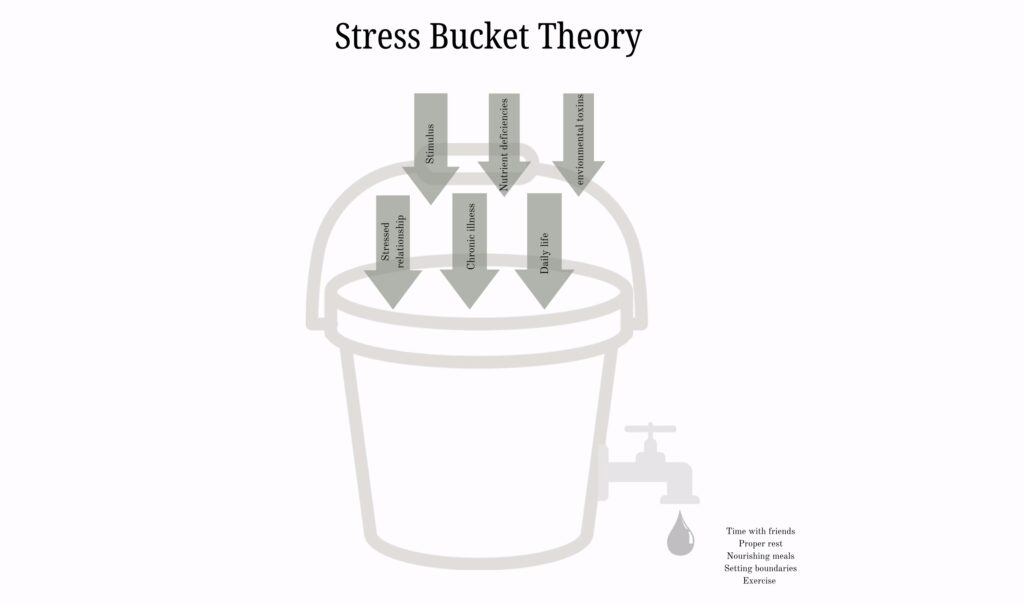
What would fill your bucket?
This could be a chronic illness, children, personal relationships, intense work outs, low blood sugar, nutrient deficiency, or metabolic stress like environmental toxins, too much caffeine etc. When this bucket if full, and just keeps over spilling this is when dysfunction sets in- this includes anxiety + depression.
While it can be important to talk about eliminated or limiting stressors, we also have to realize you should also be building a resiliency toward stress. We cannot get rid of it all. We want to recover enough to be able to tolerate it.
Related: Drink this to handle your stress better
1. Establish habits
I’m a believer that small steps make a big impact.
When I’m talking with clients, I like to encourage them to picture their self care habits as bricks in a wall that you’re building. Each time you choose your good habit you are putting a brick into that wall. Conversely, anytime that you are choosing against your intentions those bricks that you already built into your wall do not come out there still there, it still matters even if you skipped a day or you skipped a week.
I personally like to talk a lot about habits because they were so impactful at changing my life. If you could use some encouragement and motivation to help you to build new habits into your life, I would strongly recommend James Clear Atomic Habits book. It’s older, so you may have seen it before, but it is truly a great starting point for building in new habits.
When you are trying to build new habits into your life, it is important to consider the obstacles. What is going to get in the way of you walking after your meal each night? Or what is going to get in the way of you eating a protein filled breakfast in the morning? If you solve for those problems before they become a problem, you have a solution to it, before it’s even there- then it can help you to enact your troubleshooting plan when you need it.
Related: How to break old habits
Also recognize that today does not indicate tomorrow. Just because today is really hard, all of your priorities got switched around, you slept in, you picked a poor breakfast, you had sugar cravings before lunch, and then you had a candy bar and now your energy is tanked and you don’t wanna work out… and just this domino effect of a few bad choices on top of each other. This does not have to define everything else! You can always stop and start over. There is not this point when you need to turn in the towel- it’s just making a different choice the next time.
Related: Habits that lead to burn out
2. Create a routine
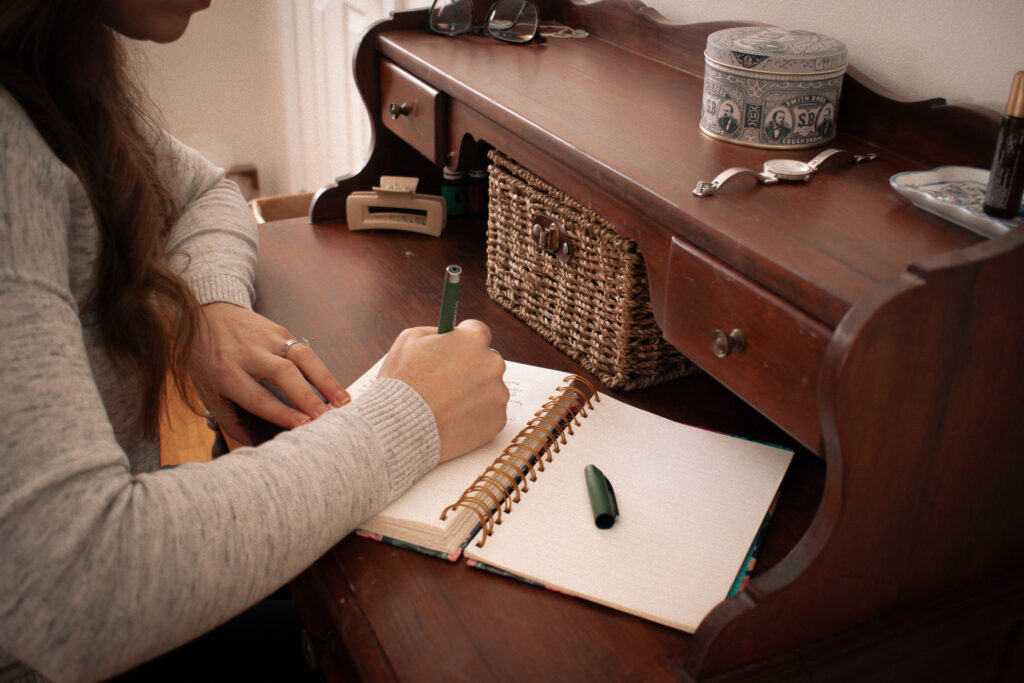
First of all, you don’t have to nail it every time! Creating a routine can be very beneficial for your self care. Typically, people begin by setting up a morning routine. It doesn’t have to be this way if you know your morning is particularly your hardest to face. You can start with a nightly or afternoon routine-either way knowing that you have this plan in place can eliminate a lot of decision fatigue. Decision fatigue is terrible common for those with anxiety and depression or any kind of stress induced illness.
Related: How to eliminate decision fatigue
Focus on the small wins. Each time you choose something in line with your values or in the direction you intend to head- this is perfect. You’re living with intention. You’re making a good choice, even if you made 10 bad choices before that. Change your direction, pick up, move on. That’s your small win.
For me, OCD therapy focused a lot on values. OCD sufferers are required to ignore their fear center and make decisions in line with their core values. Even if the whole day you gave up to your anxiety and depression… you can still catch lighting bugs with your children at 10pm and you’ll remember it years later as a healing moment in time. Ask me how I know this…
If you’re building a new routine, you have to schedule in things you know you enjoy! If you want exercise in your routine, but know that when your eyes open it is going to be so hard for your feet to hit the floor for that disciple… maybe consider something else instead. Maybe you could simply light a candle and sit with your pet. Or enjoy a square of dark chocolate with your coffee in the afternoon- perfect. Watercolor with an audiobook after you get home from work- great ideas! These things are going to help to build you back up and help you to recover from your anxiety + depression.
You’re in there! You’re just muffled out and quiet right now
Related: The devils voice: OCD recovery
You also need to be very aware of the things that are making you worse. Possibly, you need to draw boundaries or clean up your house. If you know that the clutter in your bedroom is stressful to you- working on that can really help to repair and build yourself back up it. Maybe you need to tell someone that the situation they put you in makes you uncomfortable and you aren’t willing to go forward. Be protective of your space. This is your world, and if these things are too heavy that they’re pressing you down, they are making a negative impact.
I had had a client before, realize that her overhead lights in her kitchen were very irritating to her, and causing her to be grumpier with her family. She decided to change the bulbs (simple fix). She didn’t realize this until she started being very aware of her environment, It doesn’t have to be big this big major thing where you delete everyone off your Facebook. It can just be something super small like changing lights. This gives you control and ownership of your life, outside of your anxiety + depression.
Related: Supporting anxiety and depression with nutrition
3. Set boundaries for social media
This is different from person to person. Maybe choose to not be on as often or not being on it before you go to bed. I would specifically point out- not posting before you go to bed. This engages the sides of your brain that really kick on and need approval from others. Rates of anxiety and depression have increase in the past 25 years and a lot is due to the increase of social media. You can turn off your notification helping you to stop the actual comparison trap. Constantly having access to our phones and others opinions and the reels- makes it much more difficult for us to sit with the quiet and sit with our own thoughts to help us to clear our heads. This is such an important element of self care.
4. Strengthen your mindfulness skill
Any anxiety is going to be taking you out of that present moment. The present moment, this is where your life truly exist. So when you can exist truly in the present moment, that’s powerful.
You don’t have to sit cross legged on the floor humming for it to be considered meditation. You can simply go for a walk and focus on your walk.
What do your feet feel like?
Can you concentrate on your breathing?
Do you hear the women behind you complaining about her son?
Can you feel the wind on your face?
This is still meditation. Stay connected to the present moment. Build that skill.
5. Get outdoors
Anytime you’re able to get into nature is super beneficial act of self care. Personally, I really like it because it makes me feel small. It makes my problems feel small and it just shows how amazing this world is that God is created and how powerful He really is.
Nature has a soothing effect on your heart and on your mind. Something like hiking or just spending time in the woods for 20 or 30 minutes lowers stress levels, including your cortisol. This even increases if it’s beside water– so cool.
Google implemented real plants and greenery in the office and found an elevation in their employees mood! Consider bringing nature indoors.
There is actually quite interesting correlation between indoor plants and mental health, and how it can help to repair and refresh mental health, and I personally found it quite therapeutic when I was my worst.
6. Care for your physical environment
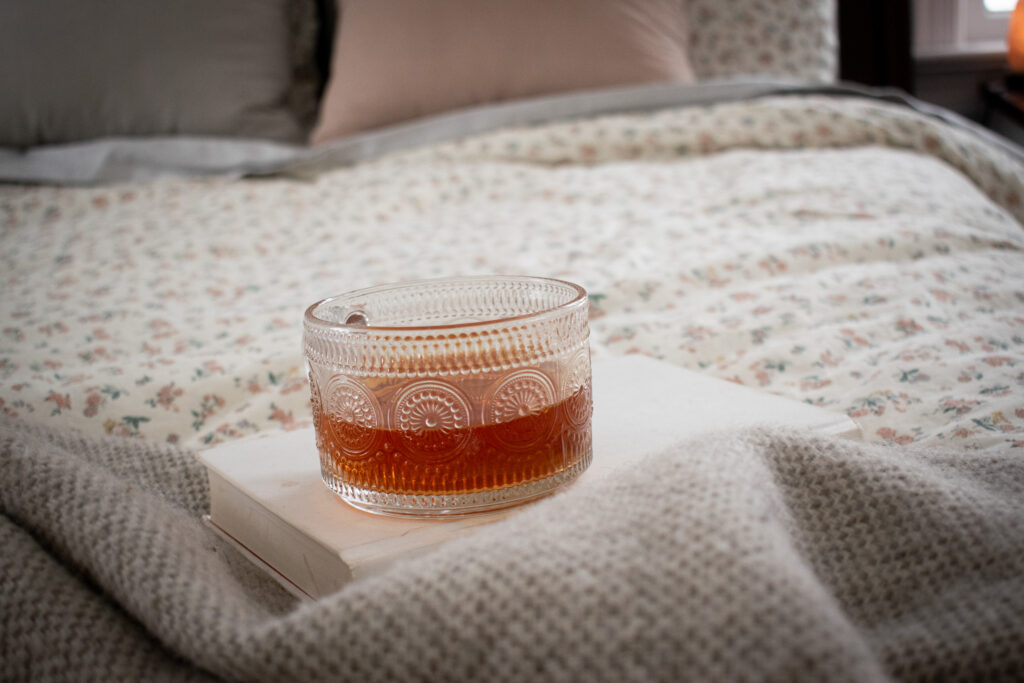
Clean spaces improve mental health and can get you through OCD or depression.
Minimalist habits have been very helpful for me and my clients. Think about that refreshing feeling of cleaning out your closet or vacuuming out your car. You also are lowing your cortisol by doing so, and in turn- lowering your inflammation.
I had a client in the past who washing her sheets + cleaning her desk off was such a huge win to her and made such a impact on her daily mood by changing her environment.
Check out some blogs or books on minimalist habits.
I know also when I was recovering, I had spent so much time in our bedroom on my worst days and when I started to recover- new paint and a new bed spread was so healing to me.
The room felt sick to me.
If you’ve ever heard of color therapy where the colors surrounding you will be impacting your mood- there’s a lot of things that you can do to help repair yourself to help restore yourself and boost your mood by making changes to your environment.
Salt lamps, candles, quiet music and special smells -these all make impact on how you feel. Think about when you walk into a spa-
What do you hear?
What do you smell and how do the slippers feel on your feet?
All those things are things that you can bring into your life.
7. Consider hot or cold therapy.
This would be referring to things like saunas or ice baths. I will be totally honest and say that cold showers were one of the clear differential factors for me when I was struggling with very severe depression when I couldn’t think right- my mind was just fried. I started doing cold showers and I would get these little moments of clarity when I could like see outside of my depression. These tiny moments became elements that I really clung to- even if it was only a few minutes. It has an immediate effect. You focus on your breathing, getting it through a few minutes of being under this cold running water and then you step out and all of a sudden it’s like you can think straight for a little bit and it was really weird and surreal and super powerful for myself. When I think back to these elements that I implemented to recover… that one is like it’s just stands out above the other.
Although is may not be appropriate for all individuals. This produces a stressful environment on the body when it is already inflamed. I’m torn between professionalism and knowing the science behind it, yet my own personal experience. So, are we friends? If so, I would recommend a friend to try it out- anything to help you see outside of your depression. <3
8. Behavioral Activation
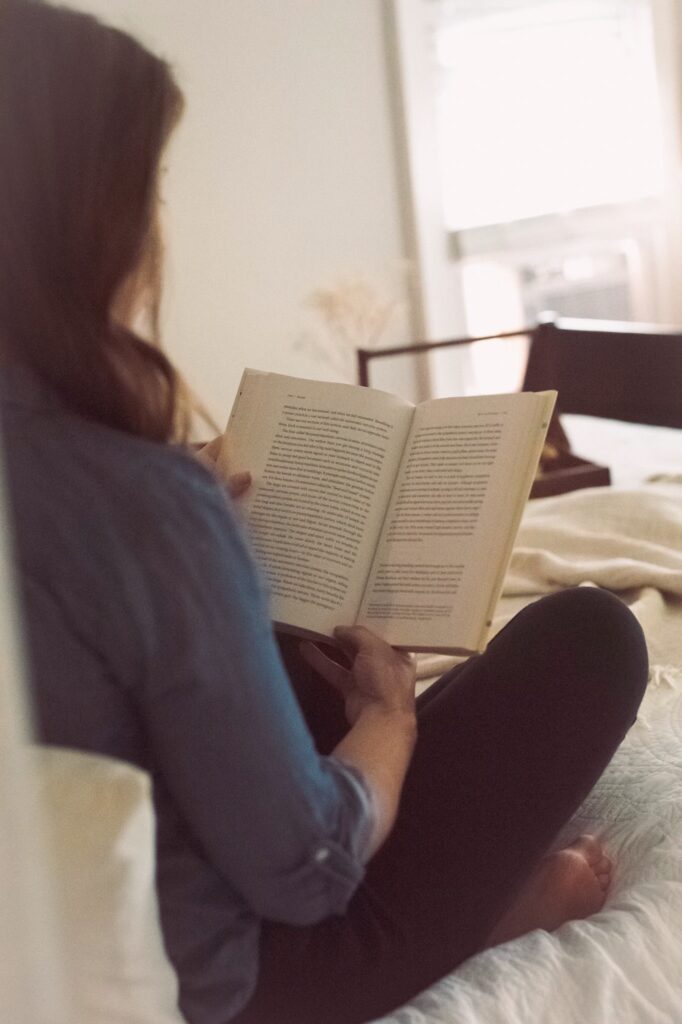
Behavioral activation refers to implementing habits or disciplines to things that you know are important to you. This could be your hobbies, reading or a certain style of music, window shopping, creating art… whatever it is. Behavioral activation is purposely putting those things into your day —even when you don’t want to. Force yourself to show up for you because you know you enjoy these things.
This practice makes the real you stronger- the one who exists under all of the fog or anxiety + depression.
Staying forward focused is so important to improving mental health.
9. Get with your friends.
Adequate amounts of social connection are associated with increases levels of the hormone oxytocin, which will decrease anxiety levels and stimulate the parasympathetic nervous system, helping you to calm down. I’m sure you are aware of the people in your life that do help to regulate you opposed to the people that might cause you to need a lot of energy for. Bring those people into your day to increase your laughter, improve your mood and reduce your stress hormones. This will increase the endorphins to help you to feel good as well as strengthening your relationships, helping you to feel more connected to that person.
A day without a friend is like a pot without a single drop of honey left inside
Winnie the Pooh
10. Movement
The last thing but absolutely not least important is movement.
Exercise has an anti-depressant effect and it begins as early as the first workout session and continues beyond the conclusion of the exercise program. There is an increased benefit when the sessions are consistent and when the training program is longer than eight weeks. If you are looking for a special program, I can help you to find one-I know community challenges are a really good way to increase your likelihood of showing up or hiring a coach ect. Movement decreases the muscle tension throughout the body, physical activity, activates the frontal cortex of the brain, which is our control reaction system, which if we’re talking about anxiety- this is major.
Outdoor exercises also increase the benefits even more so just like we said with adding in nature, but there are so many options for getting in movement with weights, cardio, hiking, rucking, dancing Hiring a professional for accountability or community can be helpful. Just be sure you choose something you enjoy.
These elements were written from my heart after I fumbled through my worst years of OCD and depression. After recovery, I spend my days guiding others through the steps of healing, to be used along side of proper therapies. When you restore the body, you have more strength and stamina to fight your illness. I can’t wait for you to see how beautiful recovery is.
Book a free consult call to hear more about how this could help you recover.
I’m terribly passionate about seeing women recover from anxiety + depression. That’s why I turned it into my life mission.
I created a free course with my signature 5 step program to get you can-
- Fall asleep easier and sleep all night long
- Stop having a $1 reaction to a 50 cent problem
- Quiet your mind and feel balanced and at peace again
You can download this free course right here and learn the steps I walk through my every own clients with.
Save for later!
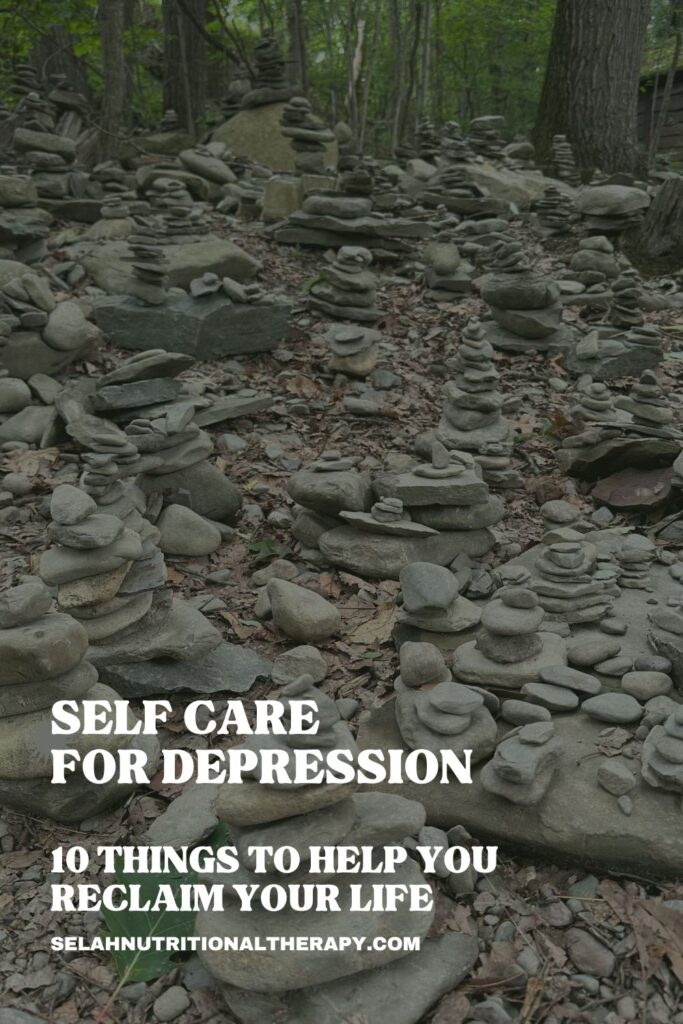
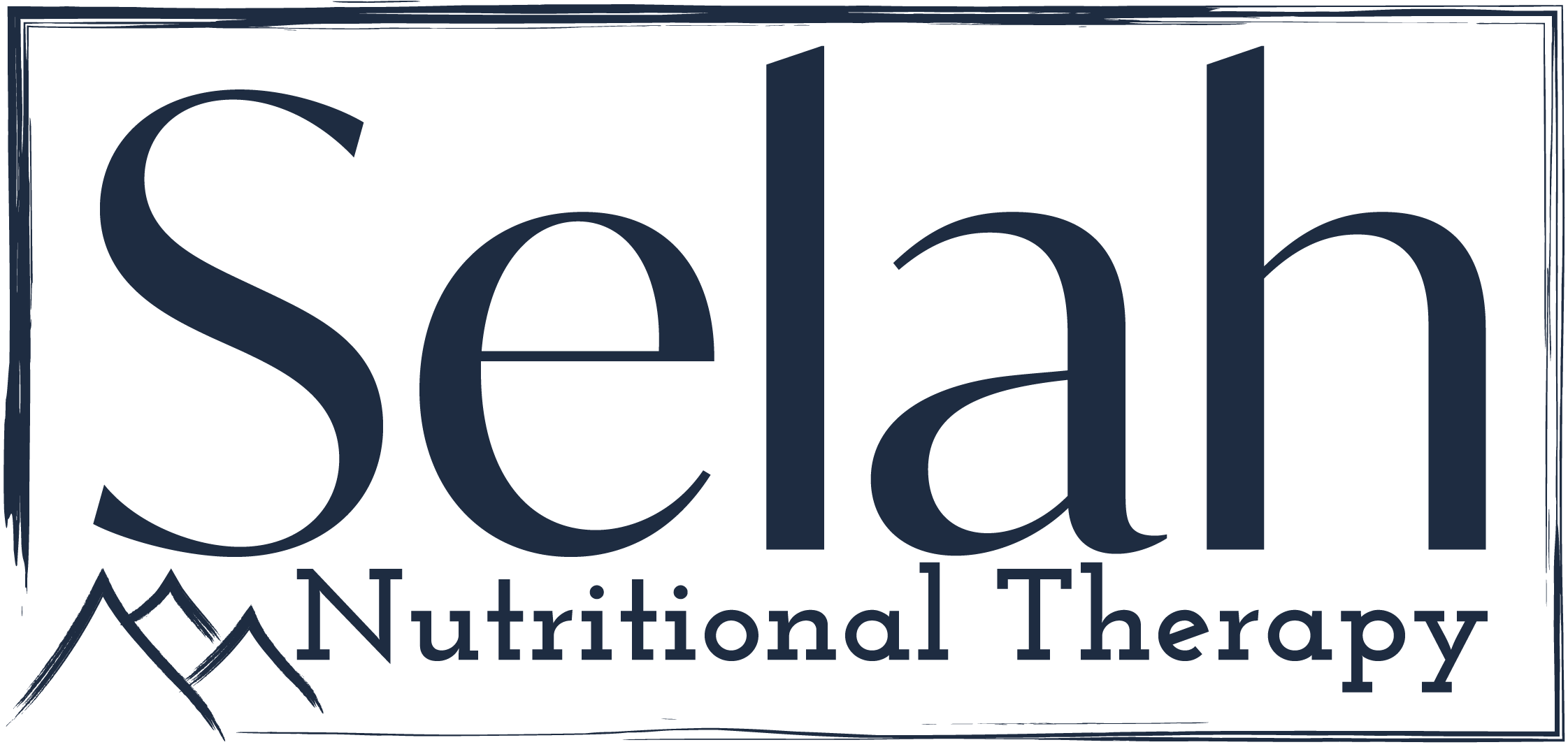
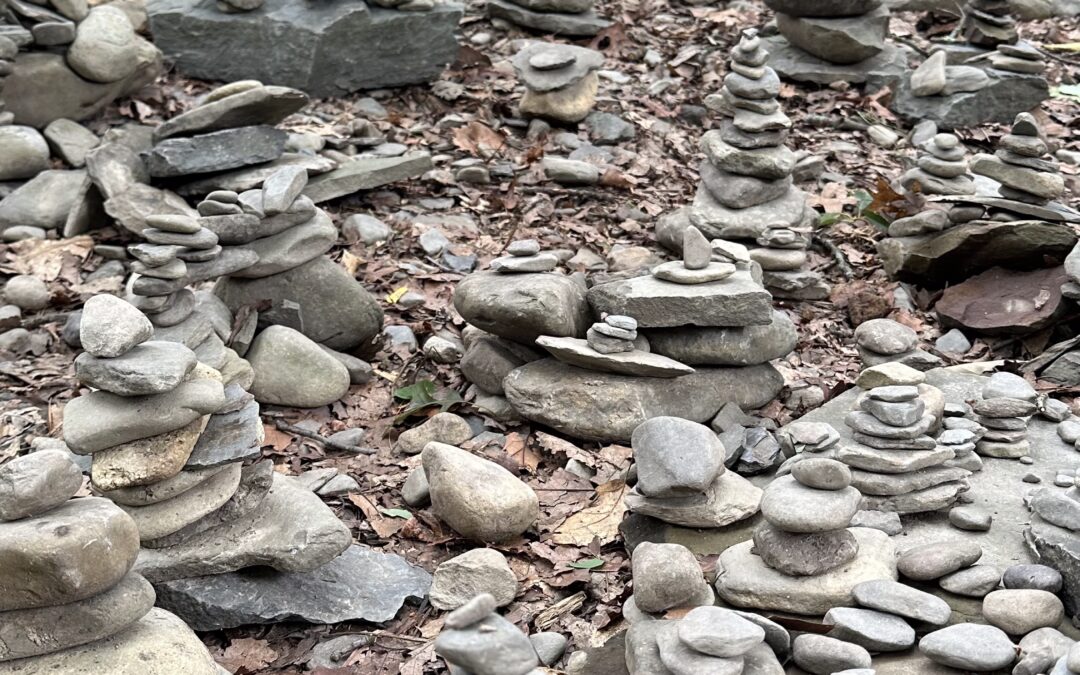

Great tips! Thank you!
Thanks for taking time to read!
These are great Tips! Thank you for this !
Thanks for stopping by
As someone who always gets the winter blues, this is a great list. Thanks for sharing!
Hopefully they can help you have a better season
These are such good tips and such good reminder for me! I’ve been working on a lot of these lately.
Hope you find healing
The advice you give in this post is so very helpful! Behavioral activation is a concept I’ve heard of, and not something I put into practice very much. You are so right that it comes to moving forward and just doing the thing we know will help us. Thank you for breaking down these important concepts for self-care!
Glad you found it helpful
Beautiful post. You can feel it’s heartfelt. Thank you!
glad you enjoyed it
Such a great post! Great tips for when depression or anxiety want to hang out!
thanks for reading
These are such great suggestions! Beneficial habits can make such a difference without doing harm, especially over time.